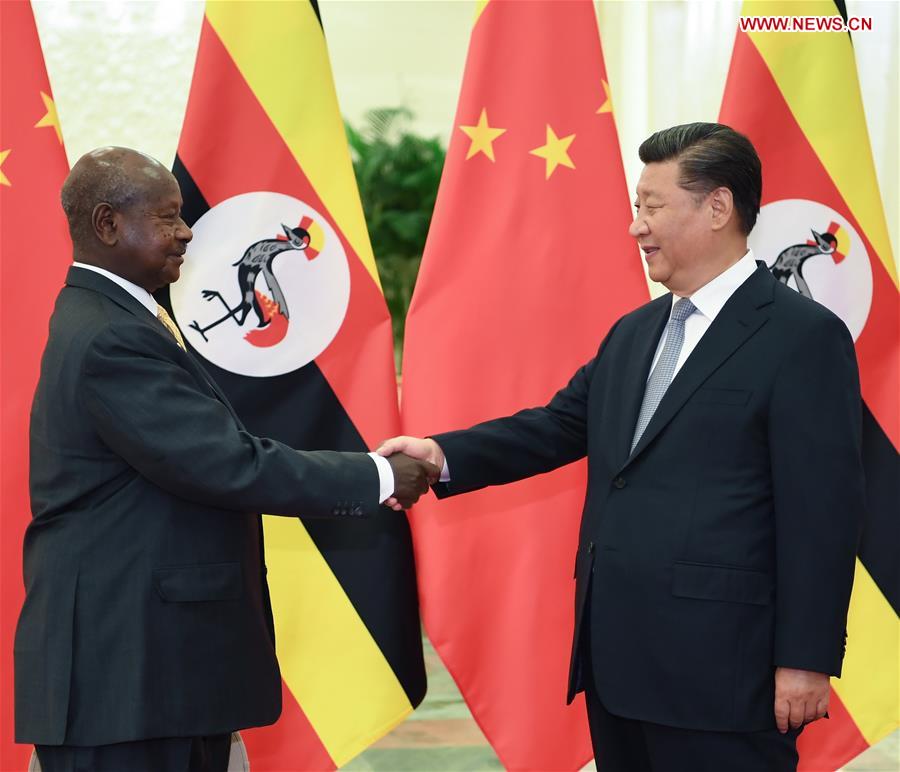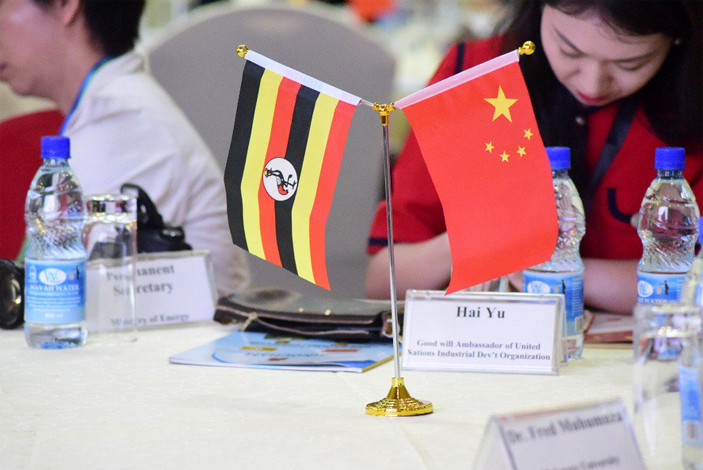By Nnanda Kizito Sseruwagi
I recently travelled to Beijing to participate in the 3rd Conference on Dialogue Between Chinese and African Civilizations organized by the China Africa Institute (CAI).
In preparation for the conference, the organizers asked what topic I would prefer to discuss. I chose to contribute to the one on promoting Belt and Road Initiative (BRI) cooperation by sharing development experience between China and Africa. This is because, as a recent graduate, I have reflected deeply on the most significant ways I can contribute to my country and the African continent and resolved that it’s through adding to our capacities for economic development and social transformation. This conference provided me an opportunity to contribute knowledge and also learn from other experts and scholars on development, especially around the world’s biggest development finance initiative by comrade Xi Jinping- the BRI.
I moderated a panel of knowledgeable persons including Prof. Zhang Zhenke, the Director and Professor of the Center for African Studies at Nanjing University; Prof. Yusufu Ali Zoaka, who teaches Policy Analysis and Development Studies at the University of Abuja in Nigeria; Mr. Wang Yongzhong, the Director and Research Fellow at the International Commodities Division of the Institute of World Economics and Politics (IWES) at the Chinese Academy of Social Sciences (CASS); Prof. Leon-Marie Nkolo Ndjodo of the University of Maroua in Cameroon and Prof. Wang Qilong, the Changjiang Scholar of the Ministry of Education in China and Vice President and Professor at Xi’an International Studies University, among other experts.
After the conference, we flew from Beijing to Fujian Province in South Eastern China. There we drove by road from Fuzhou city to Ningde city, up to Xiaqi village- a boat dwellers settlement which boasts the successes of poverty alleviation in Ningde city.
It was easier on this trip to be overwhelmed by the majesty of infrastructure projects undertaken by the Chinese government, which most first-time travellers from developing countries feel when they visit developed countries. I was also impressed but not by the greatness of the state of China as experienced through such projects, rather by the sheer dedication, discipline and meticulous detail of every Chinese peasant and elite while doing their work.
For thousands of miles across cities and country roads, one sees that every building, every walkway, every street and every tree along the road has been cared for and maintained with religious dedication.
It is easier for the government to oversee imposing projects such as the long bridges across rivers and lakes or the tunnels through mountains to ease road transport. But the hardest thing to achieve is to instill discipline in every citizen to maintain these works.
No government has the reach let alone the grasp to compel a billion people to avoid vandalism, or littering, or to obey traffic rules or clean their homes. In fact, police officers and soldiers were absent from the public. Everyone in these cities enforces discipline by themselves without the vivid coercion and gun-wielding we see in Kampala. I last saw a gun at Entebbe International Airport and the first thing I saw as I disembarked from the plane to access the airport terminal on my return was a submachine gun wielded by a police officer! One wonders how and why a society so obsessed with coercing order as Uganda is, remains so disorganized.
I pondered deeply about order and public hygiene because I realized that it is one of the things a society can have regardless of the functionality of the government. We can blame the government for bad roads, but who shall we blame for failing to make our beds? Or failing to keep away from grass in public spaces? Or failing to dump rubbish in dustbins? Or failing to obey traffic rules?
Many things can make a society function regardless of whether the government has money to provide public goods and services, or whether it is corrupt. These are the things that impressed me most about China. These simple attitudes among its people.
Xiaqi village is one of the most backward places in China. It has peasants who were homeless boat-dwellers thirty years ago. Although one may be impressed by the poverty alleviation undertaken by the government of China in resettling them into decent housing and availing them of social services, I was mostly impressed by their order. Every household has at least two dustbins. The dustbins looked cleaner than they were expected to be. There was not a single piece of litter in their backyards. Not even a cigarette residue. Every flower tree along the roads from this village up to Ningde city looked tendered for with peerless attention. And the roads seemed to be mopped daily. But it’s all because everyone cares not to litter and everyone maintains public facilities in good shape.
No government has the capacity to oversee such dedication and discipline among its citizens to achieve this level of civilization. And citizens needn’t wait for the government of their choice to take personal initiative to tidy up their environment or maintain the few public facilities available. To me, this was the most impressive development in China. And we do not need China’s GDP to attain such social order in Uganda.
The author is a senior research fellow, Development Watch Centre.






